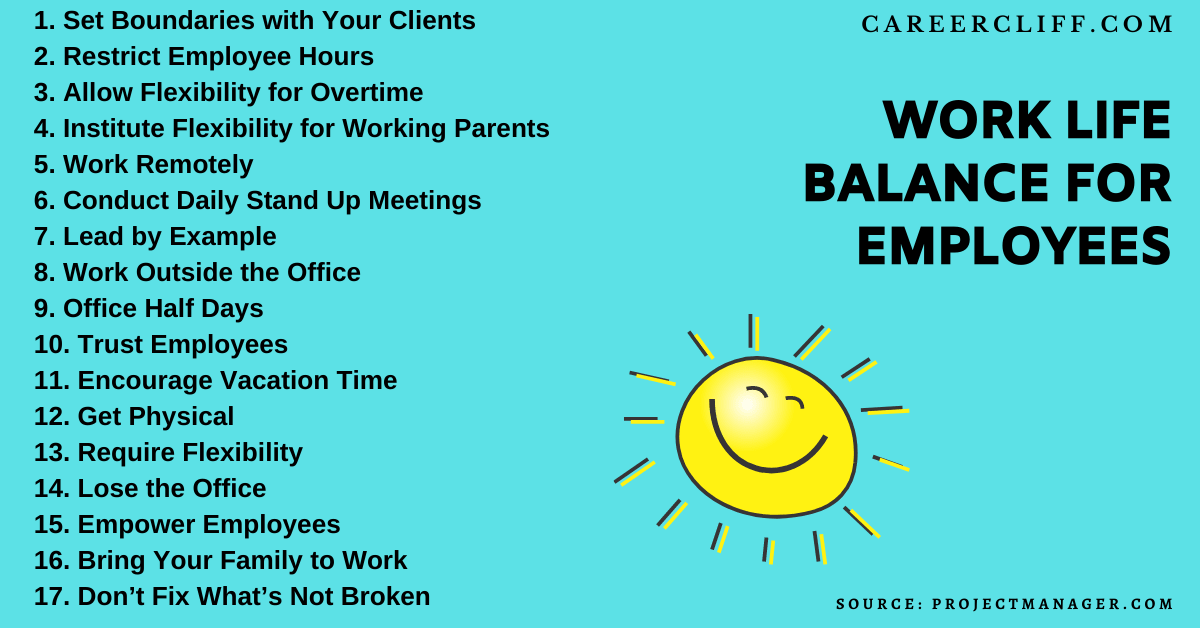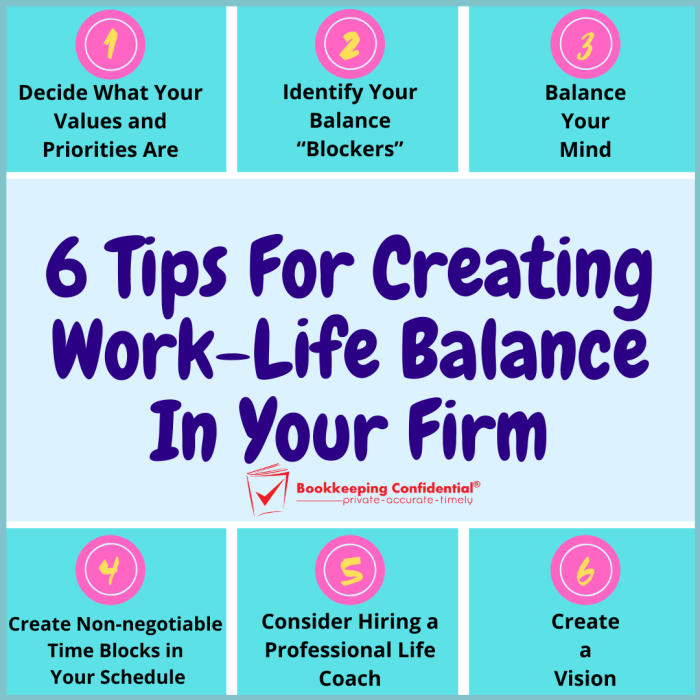With Work-Life Balance Tips at the forefront, this paragraph opens a window to an amazing start and intrigue, inviting readers to embark on a storytelling american high school hip style filled with unexpected twists and insights.
Finding the perfect balance between school, work, and personal life can be a real struggle for high schoolers. But fear not, we’ve got the ultimate guide to help you navigate through the chaos and come out on top!
Understanding Work-Life Balance

To me, work-life balance means finding a harmonious blend between my professional responsibilities and personal life. It’s about not letting work overtake all aspects of my life and making time for things that bring me joy and fulfillment outside of work.
Work-life balance is crucial because it helps prevent burnout, reduces stress levels, and improves overall well-being. When we are able to balance our work and personal life effectively, we are more productive, creative, and satisfied in both areas.
One common challenge people face in achieving work-life balance is the blurred boundaries between work and personal life, especially with technology making it easier to be accessible at all times. Additionally, the pressure to constantly be productive and successful can lead to neglecting personal relationships, hobbies, and self-care.
Tips for Improving Work-Life Balance

Finding the right balance between work and personal life is crucial for overall well-being. Here are some practical tips to help you achieve a healthier work-life balance.
Setting Boundaries
- Establish specific work hours and stick to them to prevent overworking.
- Designate a workspace at home to separate work from personal life.
- Communicate your boundaries clearly with colleagues and supervisors.
Prioritizing Tasks
- Create a to-do list and prioritize tasks based on importance and deadlines.
- Delegate tasks when possible to lighten your workload.
- Learn to say no to additional responsibilities that may overwhelm you.
Benefits of Time Management
Managing your time efficiently can significantly impact your work-life balance. Here are some benefits of effective time management techniques:
“Time management helps you focus on essential tasks and avoid procrastination, leading to increased productivity and less stress.”
- Allows for better organization of tasks and prevents last-minute rushes.
- Creates more free time for personal activities and relaxation.
- Improves decision-making skills and reduces feelings of being overwhelmed.
Incorporating Self-Care Practices: Work-Life Balance Tips
Self-care plays a crucial role in maintaining a healthy work-life balance by helping individuals recharge, reduce stress, and prevent burnout. It involves activities that prioritize mental, emotional, and physical well-being, ultimately leading to increased productivity and overall satisfaction in both personal and professional life.
Self-Care Activities that Help Find Balance
- Practicing mindfulness through meditation or yoga to stay present and reduce anxiety.
- Taking regular breaks throughout the day to rest and recharge, whether it’s a short walk outside or listening to music.
- Scheduling time for hobbies or activities that bring joy and relaxation, such as reading, painting, or gardening.
- Prioritizing adequate sleep and nutrition to ensure the body and mind are well-nourished and energized.
Importance of Mental Health Breaks
Mental health breaks are essential for overall well-being as they allow individuals to recharge, refocus, and prevent burnout. These breaks can include short moments of mindfulness, taking a walk, practicing deep breathing exercises, or simply stepping away from work to clear the mind. By incorporating mental health breaks into daily routines, individuals can enhance their focus, creativity, and productivity while also reducing stress and improving their mental health.
Technology and Work-Life Balance
In today’s digital age, technology plays a significant role in both our personal and professional lives. While it offers numerous benefits and conveniences, it can also have a negative impact on our work-life balance if not managed properly.
Impact of Technology on Work-Life Balance
Technology has blurred the lines between work and personal time, making it challenging to disconnect from work responsibilities. Constant connectivity through emails, messaging apps, and social media can lead to increased stress, burnout, and difficulty in separating work life from home life.
Tips for Managing Technology Use, Work-Life Balance Tips
- Set boundaries: Establish specific times when you will not engage with work-related technology, such as during meals or before bedtime.
- Turn off notifications: Disable non-urgent notifications to minimize distractions and interruptions during personal time.
- Create tech-free zones: Designate areas in your home where technology use is not allowed to promote relaxation and family time.
- Schedule screen-free activities: Engage in hobbies or activities that do not involve screens to reduce dependence on technology.
The Concept of Digital Detox
A digital detox involves taking a break from technology to recharge and focus on real-life experiences. It can help reduce stress, improve productivity, and enhance overall well-being by allowing time for mindfulness, relaxation, and meaningful connections with others.